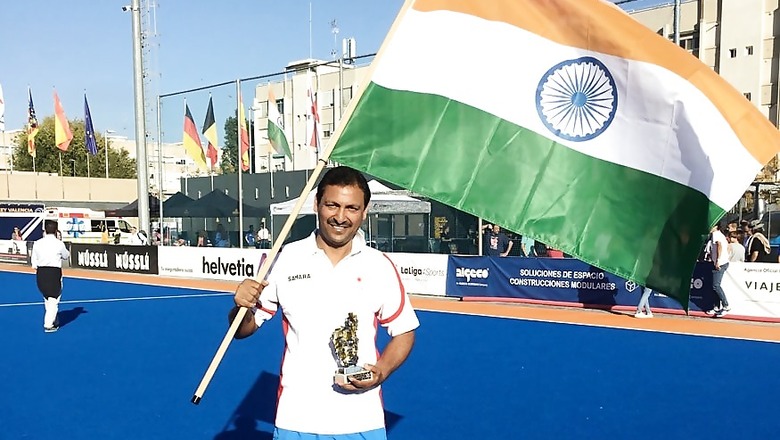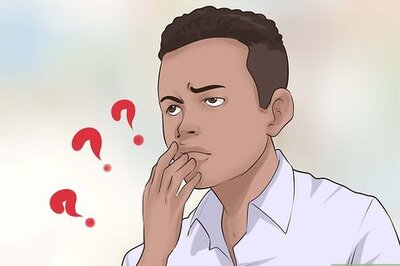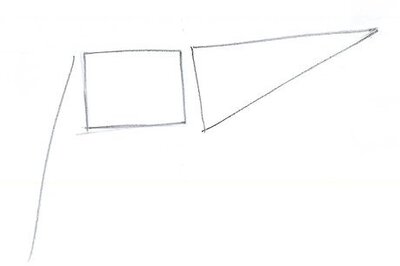
views
New Delhi: “Sports and Science are like husband and wife; they can’t be separated if you wish to achieve a desired result. You need to have both working together to achieve your goals,” says Harendra Singh, the coach of the Indian women’s hockey team.
Tiranga Hi Mera Dharma hai (Flag is my religion) reads his Whatsapp status and also gives a glimpse of the man who is obsessed with hockey and the nation.
Harendra has played an instrumental role in the women’s team turnaround, with the girls going on to achieve some astonishing victories, which included the 2017 Asia Cup title – which helped bring the limelight back to women’s hockey.
Known to be a hard taskmaster, Harendra is famous for his usage of sports science to get the desired results. The same pattern saw him deliver with the Junior Hockey Team, which lifted the World Cup and saw many of the players going on to represent the senior team.
“In today’s world scenario, if any coach fails to identify with the science, then he fails to achieve the desired targets. If the coach fails, then the team automatically fails, I am very happy that I have a support staff which understands the value of science and makes my job a lot easier,” he says.
Historically though this was never the case in Indian hockey or for that matter in any Indian sport. Indians were known to be laggards when it came to adapting the latest technology in sports and that was crucial as to why the team fell so behind the international standards.
“When I was playing there used to be just one bucket of water and that also we never used to drink because otherwise the coach thought we were weak and lacked stamina. Not drinking water is the worst thing a player can do,” he says.
Harendra credits Dhanraj Pillay for encouraging him to play abroad and he calls his stint in the French League an eye opener when it came to using science in sports.
“Dhanraj pushed me to play in Europe. That’s where I was exposed to the science they were using, not just in hockey but also in rugby and soccer across all age groups.
Tony Fernandez was our guru and he talked about sports science for the first time. I had a chance to visit the Ajax Academy, Lille Football Academy and Lyon academy. It was a real eye opener. That’s when I decided that if given a chance I will surely bring this to India and explore more,”
Harendra was given charge of the junior team upon his return and he credits SAI for understanding his approach and supporting him thoroughly with all his requirements.
He started his coaching career in 1998, and has coached the senior and the junior teams at different times.
The 2005 Junior Hockey World Cup remains one of the lowest points of his career, where a strong Indian team went down to Australia in the semi-finals with some controversial decisions and an inconsolable Harendra sobbed on the sidelines.
However, in 2016, he was at helm when the junior team lifted the World Cup at home and that healed some of his wounds.
He was one of the favourites to take over the men’s national team after Roelant Oltmans departure; however the job went to Sjoerd Marijne. Many were critical of the move, with former players criticizing Hockey India for its obsession with foreign coaches.
Harendra though wasn’t disappointed and in fact feels foreign coaches are needed in the country, “India has always produced great players but not great coaches. We have the skills and even the world agrees that India has among the most skillful players, but that is just one of the many elements required to succeed. You need to talk about diet, nutrition, fitness, recovery, sleeping patterns and I could go on. We still have a vacuum to fill when it comes to these areas. At the same time, I am happy to see that many young coaches are coming up, who have the knowledge. You need them at the junior and sub-junior levels,” he says.
He has led the women’s team turnaround and he recalled how he took a 360 degree approach, focusing not just on skills but also the mental aspect of the team.
“I remember during my first interaction with the team, I felt they were a bit low on self-esteem. So, I had a one-on-one session with the girls and also got in the team psychologist Priyanka Prabhakar, she has been with me since the junior team so we have a great understanding. I gave her my feedback and she started working with the girls. It showed immediate results as the self-confidence started growing and slowly started translating into team confidence.”
“My aim is to give the fittest team tag to these girls and by fit I mean speed & strength with agility. Once you have these characteristics, you can exploit any team. It improves your decision making on the field which produces results. Scientific advisor Wayne Lombard has been working hard with them and I would like to thank him,” he adds.
There is an unmistaken clarity in his voice and you can’t miss the no-nonsense approach with which he pursues his job. Calling himself as someone who is ‘obsessed’ with his job, he thanks his family for being supportive.
Known for setting high standards, the coach says he expects nothing less than gold in the Commonwealth Games.
“CWG is a base for the World Cup. I will be happy with only a gold medal, if girls are pleased with any other position, than be it.”
When asked about ‘realistic expectations’, the coach says setting targets which are in between is not his cup of tea.
“I always set the highest target. There is no parameter to see what is achievable. Determination is the key for me and it can help you go further. If I already set a particular target, then the body and mind will automatically stop there,” he adds.
His obsession with the sport can be felt as you discuss hockey with him and with the clarity of thought he possesses, you can certainly say that Women’s hockey is in safe hands at the moment.















Comments
0 comment